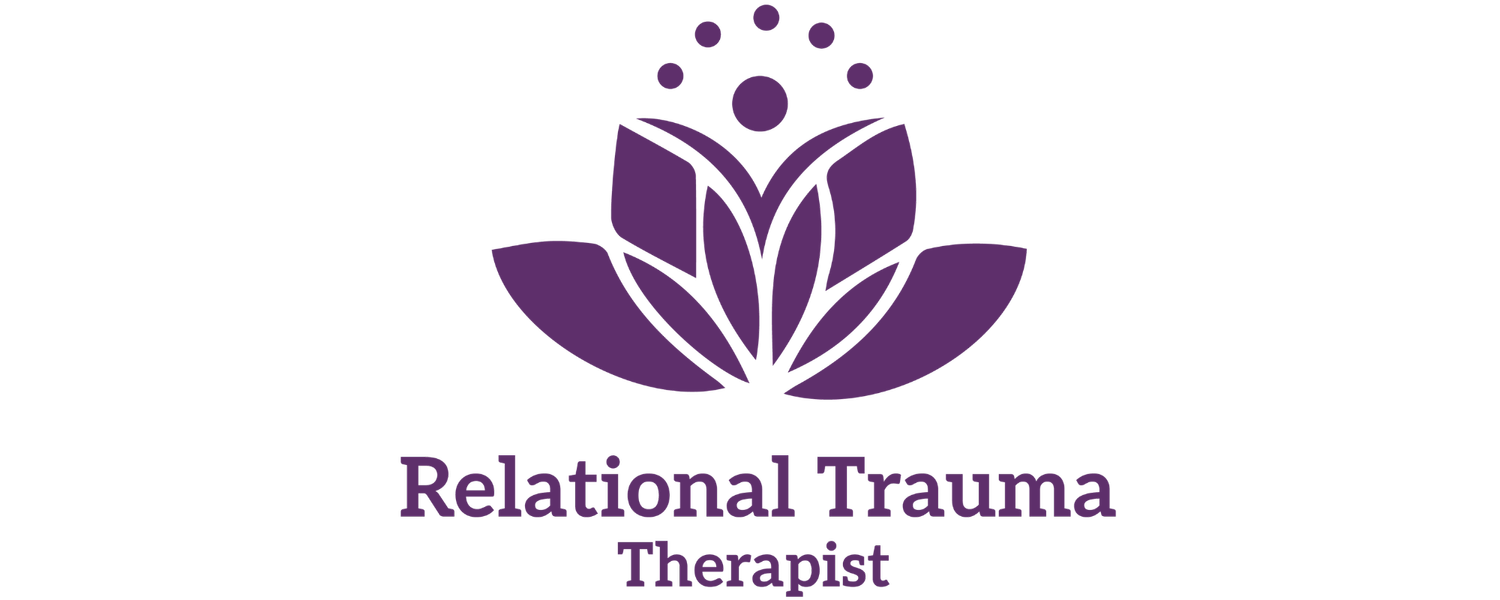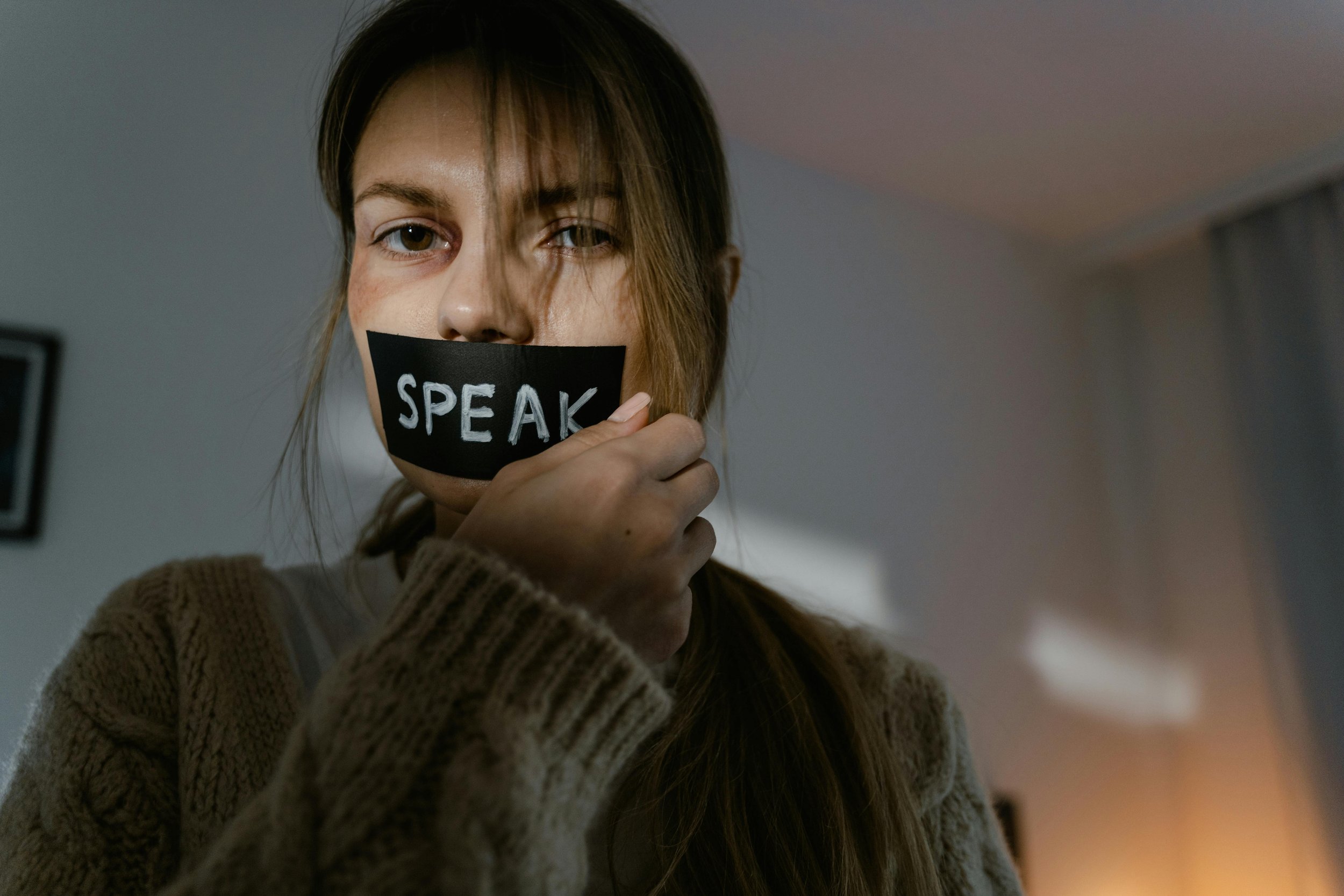Trauma Bonds: Why They Feel Like Love But Are Built on Control
Love isn’t supposed to hurt this way.
If you’ve ever found yourself holding onto a relationship that makes you feel small, anxious, or unworthy—but also deeply attached—you might be in a trauma bond. These relationships often look like love on the outside. But what’s holding you there isn’t love. It’s fear, manipulation, and a nervous system that's been trained to confuse chaos for connection. This pattern can emerge from early experiences like childhood sexual trauma in adults, or from being trapped in the abuse cycle of a narcissist, making the emotional bond feel impossible to break.
Let’s unpack why trauma bonds feel like love—and how to begin untangling yourself from the hold they have on your heart.
What Is a Trauma Bond?
A trauma bond forms when someone repeatedly harms you but also intermittently gives you affection, apologies, or moments of intimacy. Your brain starts to associate the person causing pain with the rare moments of relief. It becomes a loop:
Hurt.
Hope.
More hurt.
Another sliver of hope.
And just like that, you’re stuck in the cycle. This isn’t love—this is survival mode. In some cases, this pattern is rooted in childhood sexual trauma or emotional neglect, which wires the nervous system to confuse unpredictability with intimacy.
Why Trauma Bonds Feel So Much Like Love
Trauma bonds trigger powerful emotional and chemical responses in your brain. Dopamine from moments of affection. Cortisol from the stress. Oxytocin from intimacy. Your nervous system becomes dysregulated—addicted to the push and pull.
You tell yourself:
"They didn’t mean it."
"They love me—they just have a hard time showing it."
"If I can just do better, things will go back to how they were."
But healthy love doesn’t require you to earn it. Or fear losing it constantly. Or sacrifice your well-being to keep it alive. These trauma responses may reflect unresolved pain from childhood sexual abuse and trauma, which distorts one’s understanding of safety and love. In fact, according to the Attachment Project’s article, What is Trauma Bonding? explains that trauma bonds are not genuine love—they are formed through cycles of abuse and intermittent affection that condition the brain to confuse fear with intimacy. These manipulative dynamics can leave survivors anxious, isolated, and vulnerable to long-term effects such as mood disorders and PTSD.
Signs It’s Not Love—It’s a Trauma Bond
You feel anxious, more than safe.
You constantly question your memory or reality.
You believe their "nice moments" mean they've changed.
You feel addicted to the relationship, even when it hurts.
You blame yourself for their behavior.
These are red flags of narcissistic abuse and signs of a toxic relationship. Understanding the difference between trauma bonding vs love is essential, while love fosters safety and respect, trauma bonds thrive on control, fear, and emotional dependency.
Healing from narcissistic abuse involves recognizing the manipulation and understanding that your reactions were survival-based, not weaknesses.
Trauma Bonds Are Built on Manipulation and Control
These bonds thrive in relationships where there's:
Gaslighting. You’re made to feel like your perceptions are wrong.
Isolation. You're pulled away from family and friends.
Hot and cold behavior. Affection is given, then taken away.
Guilt-tripping and blame. You’re told everything is your fault.
The goal? Keep you doubting yourself. Keep you needing them.
This is the hallmark of emotional abuse and manipulative relationships. Understanding the narcissistic abuse cycle can be empowering. These relationships often go through idealization, devaluation, and discard phases, each intensifying the trauma bond.
The effects of narcissistic abuse can include memory problems, low self-worth, hypervigilance, and even ptsd from narcissistic abuse.
Victims may benefit from specialized recovery through therapy for narcissistic abuse or joining a narcissistic abuse support group for community-based healing.
Breaking the Illusion
Letting go of a trauma bond isn’t just about walking away. It’s about:
Recognizing the cycle. Writing down events can help you see the pattern
Regulating your nervous system. Grounding, breathwork, and safe connection help.
Reclaiming your truth. You are not the person they tried to convince you you are.
Getting support. You weren’t meant to heal from this alone.
Therapeutic approaches such as cognitive processing therapy for PTSD or EMDR for sexual trauma can help process unresolved memories that fuel the trauma bond.
You Deserve More Than Toxic Love
Real love feels safe. Steady. Consistent. It won’t leave you spinning.
If you’re working to understand trauma bonds, heal from narcissistic abuse, and rebuild your sense of self, you don’t have to do it in isolation. My Trauma Healing Membership is here for you—a soft space to reconnect with your worth, your truth, and your body. If you’re wondering how to break a trauma bond, know that it starts with reclaiming your nervous system, rebuilding your truth, and seeking support through trauma-informed care.
Because the love that broke you is not the love that will heal you.
FAQs
What is a trauma bond in a relationship?
A trauma bond forms when a person becomes emotionally attached to someone who repeatedly hurts or manipulates them. The cycle of abuse and affection creates a deep, confusing connection that feels like love but is rooted in control and fear.
How can you tell the difference between trauma bonding vs love?
The key difference between trauma bonding vs love lies in emotional safety. Love builds trust, mutual respect, and peace, while trauma bonds cause anxiety, confusion, and dependency on the abuser for validation.
Why do trauma bonds feel so strong?
Trauma bonds feel powerful because of the emotional highs and lows caused by manipulation and intermittent affection. These cycles activate the brain’s reward system, making it difficult to break free even when the relationship is harmful.
Can you heal from a trauma bond?
Yes. Healing from a trauma bond involves therapy, self-awareness, and learning to set healthy emotional boundaries. Working with a trauma-informed therapist can help you rebuild self-trust and break the cycle of emotional dependence.
Can trauma bonding happen in healthy relationships?
No. Healthy relationships are built on trust, respect, and equality, not control or fear. If the connection feels painful or one-sided, it may be a sign of a trauma bond rather than real love.


